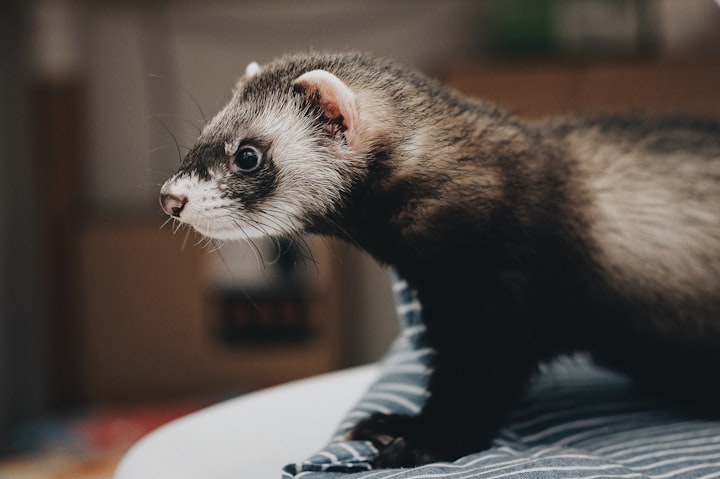Pet Black Sable Ferret Lifespan and Care
How Long Do Sable Ferrets Live for as Pets?

Ferrets are a popular domesticated pet, known for their playful and mischievous nature. Among the different types of ferrets, the black sable ferret is one of the most striking, with a dark, almost black coat that shines in the light. If you are considering getting a black sable ferret as a pet, it is important to understand their lifespan and care requirements to ensure that you can provide them with the best possible life.
Lifespan of Ferrets
On average, black sable ferrets have a lifespan of 5 to 8 years, although some can live up to 10 years with proper care. Like all animals, there are many factors that can influence a ferret's lifespan, including genetics, diet, exercise, and healthcare. It is essential to provide your black sable ferret with a healthy diet, regular exercise, and routine veterinary checkups to help ensure a long and happy life.
Caring for Ferrets
Black sable ferrets require daily care and attention to thrive. Here are some key considerations when it comes to caring for your black sable ferret:
Housing: Ferrets are active animals and require a lot of space to move around and play. A multi-level cage with plenty of room for climbing and exploration is essential. The cage should also have a solid floor to prevent injury to your ferret's feet and legs. Ferrets are notorious escape artists, so be sure to secure the cage with sturdy locks or clips.
Diet: Ferrets are carnivorous and require a high-protein diet. Commercial ferret food is available, but you can also feed your ferret a high-quality kitten or adult cat food that contains at least 32% protein and 18% fat. Avoid feeding your ferret dog food, as it does not provide the appropriate nutritional balance for ferrets. Fresh water should always be available.
Exercise: Ferrets are active animals and require daily exercise outside of their cage. This can include supervised playtime in a ferret-proofed room or outdoor enclosure. Toys, tunnels, and other interactive items can help keep your ferret entertained and mentally stimulated.
Grooming: Black sable ferrets have a short, dense coat that requires minimal grooming. However, regular nail trimming and ear cleaning are important for your ferret's health and comfort. It is also recommended to brush your ferret's teeth regularly to prevent dental problems.
Healthcare: Regular veterinary checkups are important for your ferret's overall health and well-being. Ferrets are prone to certain health issues, including dental disease, adrenal gland disease, and gastrointestinal blockages. Your veterinarian can help you develop a preventative healthcare plan for your ferret and monitor any potential health concerns.
Socialization: Ferrets are social animals and enjoy interacting with their human family members. It is important to provide your ferret with plenty of socialization and playtime to prevent boredom and depression. Ferrets can also be trained to perform tricks and respond to commands, which can provide mental stimulation and strengthen the bond between you and your pet.
In conclusion, black sable ferrets are a fun and unique pet that require daily care and attention to thrive. By providing your ferret with a healthy diet, regular exercise, proper housing, grooming,




Comments
There are no comments for this story
Be the first to respond and start the conversation.